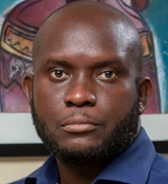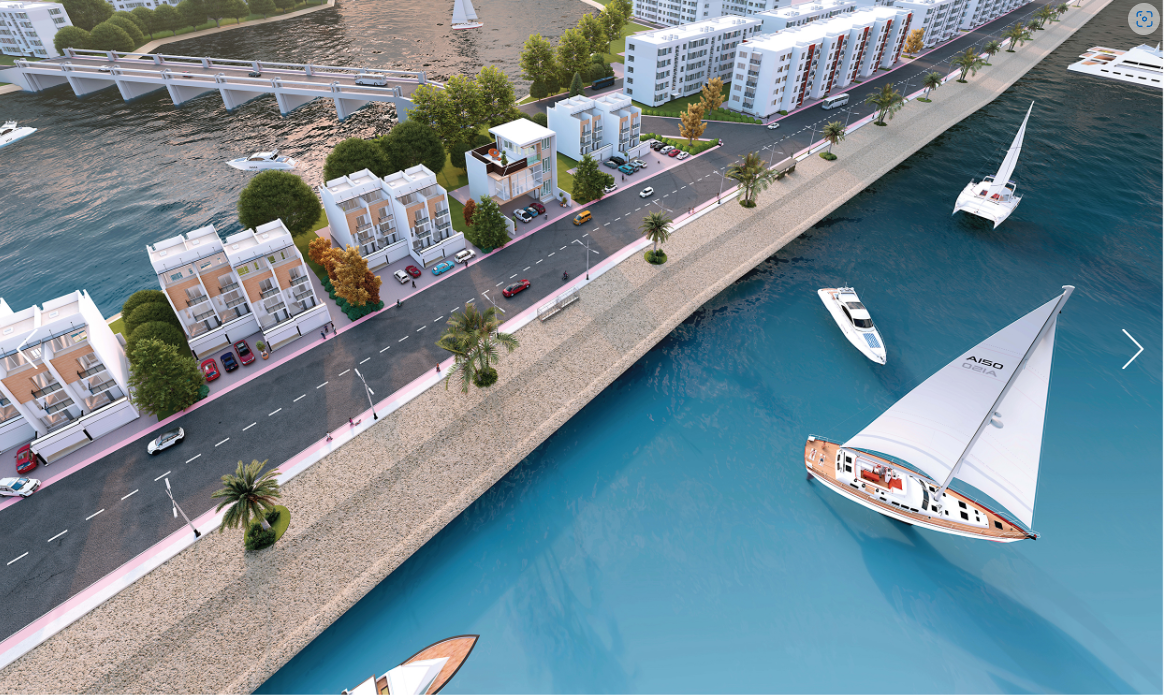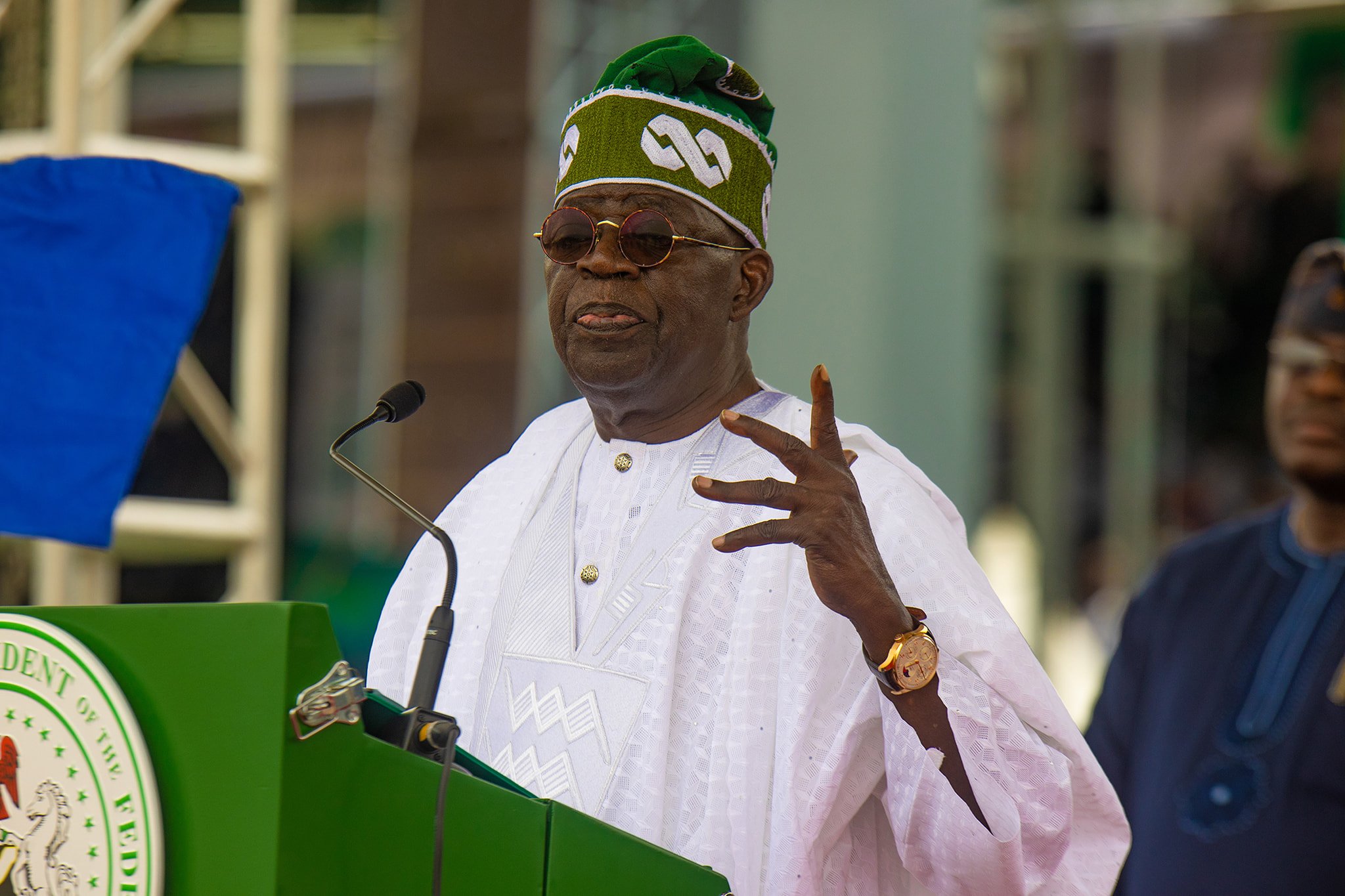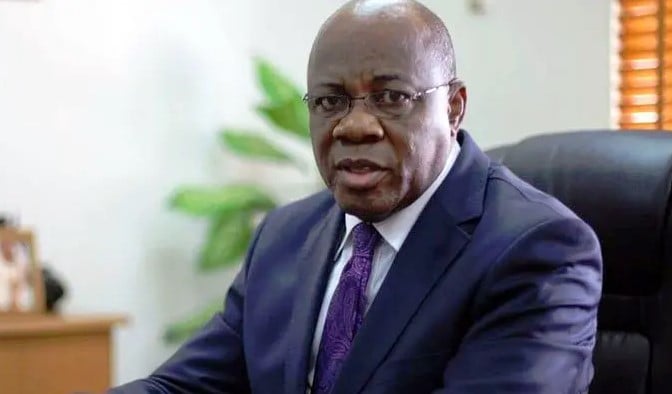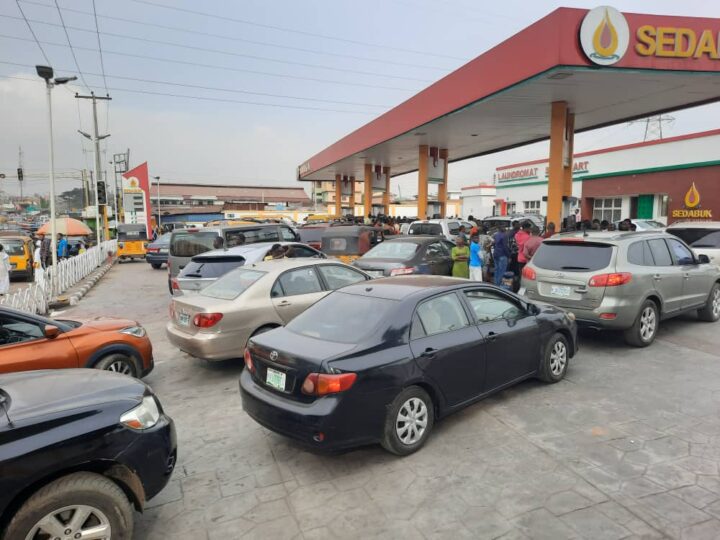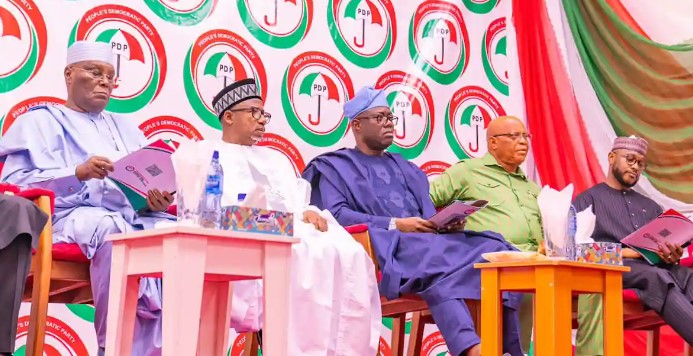“The city as a center where, any day in any year, there may be a fresh encounter with a new talent, a keen mind or a gifted specialist- this is essential to the life of a country”. It is within the context of the above quote by Margaret Mead, on the importance of cities to the sustainability and development of a country like Nigeria, that we can situate the importance of the ‘Asaba Waterfront City’ project. The political outcome of the last general elections in Nigeria, especially in some major cities, highlights the need for more global cities as growth centres in Africa’s most populous country. Such cities will not only meet the socioeconomic aspirations of the country’s increasing population, but also support effective diversity management on larger social scales.
Conceptualized by Ifeanyi Okowa, medical doctor and immediate past governor of Delta State, the coastal city project is located on the banks of River Niger, the river from which Nigeria derives its name. Asaba is the capital city of Delta state, one of Nigeria’s highest oil producing states. The city hosts the Asaba International Airport, is home to a major part of the Nigerian movie industry Nollywood, and is within some proximity of the four seaports in the state, which are Burutu, Warri, Sapele and Koko Seaports. Therefore, the project is located in the only state in Nigeria with up to four maritime ports. Asaba was also a former administrative capital of Southern Nigeria protectorate in colonial times, which underscores its long history and viability as a city of major international commerce, finance, tourism, economic and maritime activities.
Located on 351 hectares of land along the banks of the River Niger, the Asaba Waterfront City project is designed to be Africa’s newest upscale, smart and tech-driven city. Ground level heights will be raised to between 3 and 9 meters as part of land reclamation, in a manner that ensures flooding from the river does not occur. The city will consist of a central business district that caters for domestic and international economic activities; riverfront and lakefront residential development. That way, residents can live, work and play.
The city project is a public-private-partnership (PPP) venture, between Delta State Government owning 15 percent, Asaba Communities owning 5 percent and Private Investors 80 percent. The project is to be financed through a combination of equity and debt capital, in addition to presales financing. It is expected to become self-funding, a short period after commencement. Work commenced in early May 2023, after the state government approved the construction of a six-lane road along the waterfront, and earmarked N1.1 billion as compensation for those who own land in the area that will be affected by its construction.
Advertisement
Given the situation of public finance in the state and country, the ownership and financing arrangement of the project is a demonstration of not just realist options, but an acceptance of the role that private sector financiers have to play, for the success of the Asaba Waterfront City.
This is where Messrs. Nduka Obaigbena, Tony Elumelu and Jim Ovia come in. These three gentlemen have excelled in their business endeavours, and have also built global personal and business brands which can be crucially leveraged upon, to see that the city project is successfully developed. The selection of the three is also influenced by two critical success factors that are required for the project- media power for promotion; and finance for construction development.
Obaigbena is the founder of ThisDay Newspaper and ARISE TV, which are both major international media brands. He therefore has the means to adequately promote the opportunities inherent in the Asaba Waterfront City project, as a means of attracting finance, enhancing its brand, and attracting international investment for the project. Just as the Emirate of Dubai utilized the media to create an international brand for the city, and market Dubai as one of the best tourist locations in the world, Obaigbena has the media reach and marketing capacity to promote Asaba Waterfront City internationally, to attract the necessary investment the city project deserves.
Advertisement
Elumelu on the other hand is the highest shareholder and Chairman of Heirs Holdings, which is the holding company for United Bank for Africa (UBA), Transcorp, Avon, Heirs Oil & Gas, Afriland Properties, among others. UBA has operational presence in 23 countries of the world, including 20 African countries, the United Arab Emirates, the United Kingdom (UK) and federal banking license in the United States (US)- the only bank from sub-Saharan Africa with such license in the US. The bank’s assets are estimated at over $19 billion in 2022. He is the founder and promoter of ‘Africapitalism’, an Afrocentric economic philosophy that promotes the role of Africa’s private sector in resolving many of the continent’s pressing socioeconomic challenges. This philosophy has led to the training and provision of seed capital to thousands of youthful entrepreneurs drawn from all the regions of Africa. His experience and capacity in international financing, and real estate experience with Afriland Properties when aligned with the vision of the Asaba Waterfront City, can attract financing, as well as conduct real estate investments for the city project.
Ovia is the founder and chairman of Zenith Bank PLC, with operational presence in 4 African countries, a representative office in China, and operational license for the UK. Zenith Bank is one of Africa’s largest banks, with over $24 billion in assets and shareholders’ funds of over US$3 billion globally, as at June 2022. He surely has the required international financial clout to attract domestic and international investment into the city project.
Obaigbena, Elumelu and Ovia should work together and leverage their media, finance and human resource networks to provide Africa with a new model city, that demonstrates the ability of Nigerians and Africans to develop cities that are globally competitive, with optimal living standards.
There are of course major roles for Prof. Patrick Utomi the development economist; Dr. Ibe Kachikwu the corporate lawyer and former petroleum minister; Gabriel Ogbechie the founder of Rainoil Group; Benedict Peters the founder of Aiteo Group; among others. The last two play big in the petroleum sector, which still has a major role in the economy of Delta State and Nigeria, even as efforts are made towards growing the non-oil sector.
Advertisement
That all the private sector players mentioned have some natal relationship with the wider Asaba and Anioma area, is only a demonstration of the prospects of what can be achieved, when a fitting idea galvanizes human action. It is a project that should spur their patriotic instinct towards the development of the next African driven world class city.
‘The Giving Pledge’ campaign, founded by Bill Gate and Warren Buffet, is a demonstration of how very wealthy people can contribute to worthy and philanthropic causes. The Asaba Waterfront City is however not for philanthropy, but may require some level of short-term philanthropic commitment from those mentioned. The financing model of the project however makes room for cost recovery, profit making, and sustainable economic development, which are motivating factors. The involvement of these stakeholders will contribute towards the United Nations (UN) Sustainable Development Goal (SDG) eleven, which is concerned with making cities and human settlements inclusive, safe, resilient, and sustainable. And there is the UN supported Specialist Centre on PPPs in Smart and Sustainable Cities (PPP for Cities), from where research and advisory support can be sought, and also where lessons learnt from the project can be shared internationally as a Nigerian perspective. Same can be done with the International PPP Centre of Excellence (ICoE) of the United Nations Economic Commission for Europe (UNECE).
It is important to stress that the Delta State government and the Asaba people are important to this project. While the former owns 15 percent, the later owns 5 percent. That the current Governor, Sheriff Oborevwori emerged with the support of the previous government which initiated the project, should mean that the interest and support of the current administration in the state for the project, will not wane. The slogan of Delta State is ‘The Big Heart’. In human anatomy, the heart plays a critical role in the supply of blood, oxygen and nutrients to other parts of the body. Perhaps, that explains the strategic choice of Asaba and what is now Delta state as a major location for international economic and financial activities, from colonial times. The other parts of Nigeria will be well served with the additional oxygen and nutrients from the Asaba Waterfront City.
The time is right for a new Nigerian city of global competitive standards, which supports greater socioeconomic development in Nigeria and Africa. The time is also right for Nduka Obaigbena, Tony Elumelu, Jim Ovia, Patrick Utomi, Ibe Kachikwu, Gabriel Ogbechie, Benedict Peters among others to deliver to the world, an African city of global competitive standards, in further demonstration of the ability of Africans to develop sustainable and high-quality living spaces. The prospects and features that made Asaba the capital of Nigeria’s southern protectorate and headquarters of multinational companies over 100 years ago are still present. The world awaits the Asaba Waterfront City.
Advertisement
Dr. Uwanaka writes from African University of Science and Technology. [email protected]
Advertisement
Views expressed by contributors are strictly personal and not of TheCable.
Add a comment
